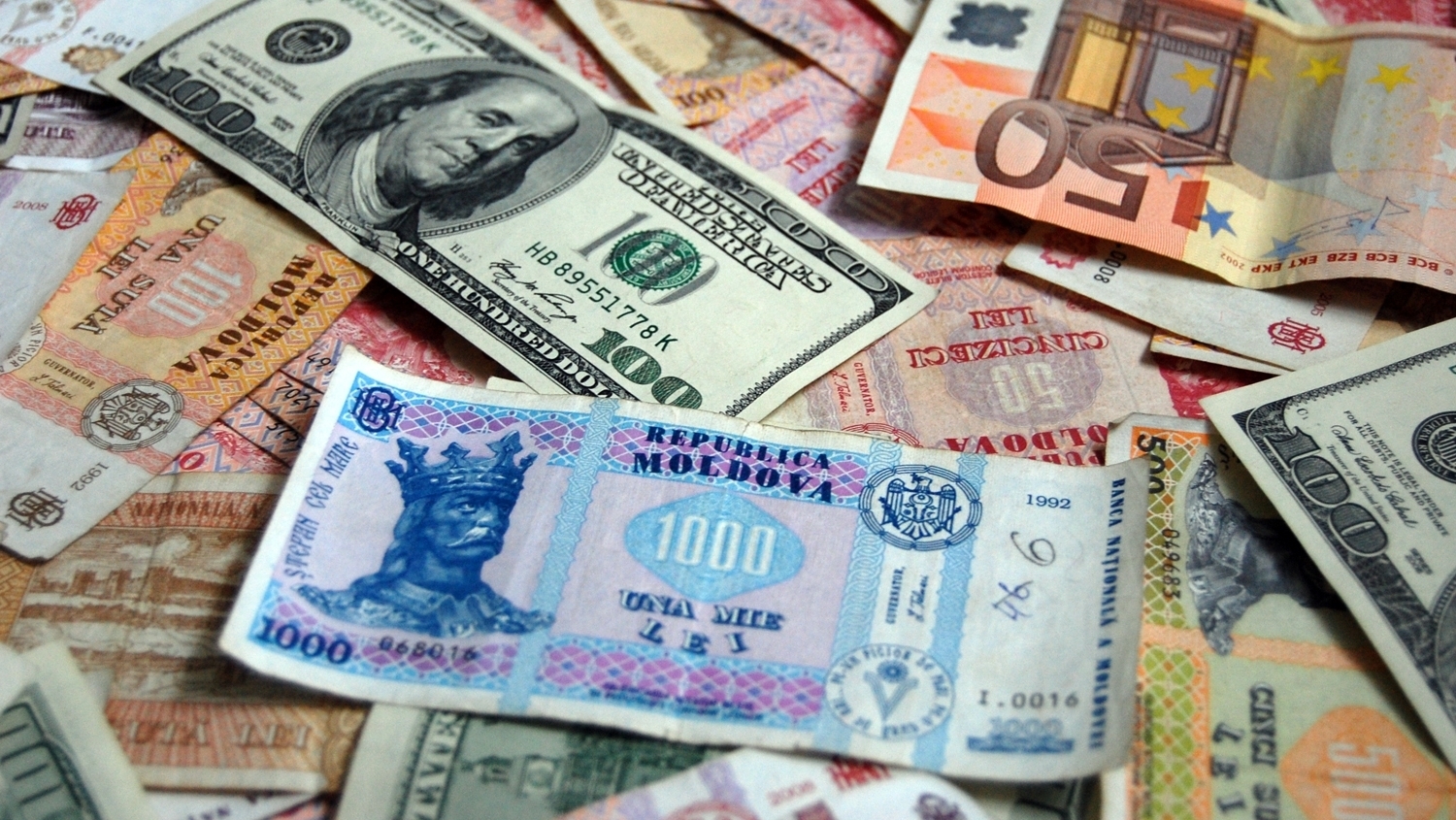
For two years and seven months, the Moldovan leu continues to appreciate the euro and dollar reference currencies. Leo from January to February 2016 appreciated 23% against the dollar and 15% against the euro. We will witness a slight depreciation of the national currency, but we will enter with a stable leu in the elections, IDIS "Viitorul" economist, Veaceslav Ionita, in the show "15 minutes of economic realism".
The Moldovan Leu appreciated for two and a half years compared to all currencies, while in 2014, 2015 and 2016 it depreciated and recorded new records. The leu course goes on the carousel, it depreciates, it is appreciated, which does not make good the economy of the country and the population.
"We are currently witnessing the appreciation of the leg, which lasted in August. But in the penultimate week of the month, the national currency depreciated by 1.4% - the most this year against the currency basket (eurodollar). In the first three weeks, the leu strengthened, and in the last week it has depreciated and reached its level at the beginning of the month. This confirms one of the hypotheses that the process begins, around the electoral campaign, when the demand for currency from the economic agents is growing. This reduces pressure. Currently, the currency offer is higher than demand, "says Ionita.
The Moldovan lion has gone through several stages. In 2014 there was a stabilization stage when supply and demand were at the same level until then the supply was higher. Then the crisis in the banking system followed when the supply of foreign currency fell, and the demand remained found, which led to a deficit of USD 800 million and the depreciation of the national currency. The equilibrium point was reached in 2016 when demand and supply became relatively stable. Another stage began in 2018 when it started to increase the offer by more than 700 million USD, a surplus of supply of currency versus demand, which led to the appreciation of the national currency. In March the market peaked - the difference between supply and demand was USD 370 million.
"It is currently observed that the supply of currency by citizens continues to grow, but quite slowly. If nothing happens, the net bid of 2018 will be $ 2.1 billion. But the offer is rising, but it has slowed since March. Against the backdrop of a stable offer, we witness an interesting phenomenon - the accelerated growth of the demand for currency by economic agents. If in March the annual demand for currency was $ 1.6 billion, today's annual demand has reached $ 1.8 billion, and in the third quarter it will most likely be $ 2 billion, "he said Ionita.
As a rule, in August the currency offer by the population is 40% higher than the rest of the months. This excessive supply of currency led to the appreciation of the leu in the first three weeks of the month, and in the fourth week, we most likely witnessed the strong rise in demand for currency, which led to a depreciation of the leu.
Increasing the demand for currency from economic agents on the background of a stable offer from the population will reduce the pressure on the foreign exchange market, as a consequence decreases the likelihood of strengthening the leu against USD and EURO. It may be that by the end of the year the demand for currency will exceed the offer and will lead to a slight depreciation of the leu. It's easy because the NBM will not allow a big depreciation around the election. Apparently has all the tools. Forex reserves are close to $ 3 billion - the record they have never touched. NBM has exhausted its foreign exchange reserves twice. For the first time in 2008-2009 as a result of the regional currency crisis and in the wake of the parliamentary elections, the NBM did not allow depreciation, but intervened in the market and eroded its reserves by 700 million USD. The second similar situation was in 2014 following the devaluation of the banking system by one billion USD. At that time, foreign exchange reserves narrowed by $ 1.1 billion.
We are currently witnessing a new currency game when foreign exchange reserves reached nearly three billion dollars. If there are no other shocks that can not be predicted, minor interventions will be needed.
At the same time, the economist Veaceslav Ionita claims that in October the fiscal amnesty effect, which will generate currency in the country, could be noticed. Most likely, the fiscal amnesty will support the foreign exchange market, as the supply of foreign currency by individuals has exhausted growth. We will witness two trials. Some of the economic agents, as a result of the election cycle, prefer to buy foreign currency for various reasons, while others are lured by the fiscal amnesty will bring currency to the country. It is difficult to estimate what flow will be on both sides.
In conclusion, Ioniţa believes that in September we will probably see a slight depreciation of the Moldovan leu, and the NBM will most likely have a slight intervention on the market. After that, if the demand for currency will continue to rise and the expected foreign currency flows will not enter the country, the NBM could intervene to enter the electoral race with a stable leu.
The show is made by IDIS "Viitorul" in partnership with Radio Free Europe.
For further details, please contact the press officer, Victor URSU, at the following address: ursu.victoor@gmail.com or at 069017396.